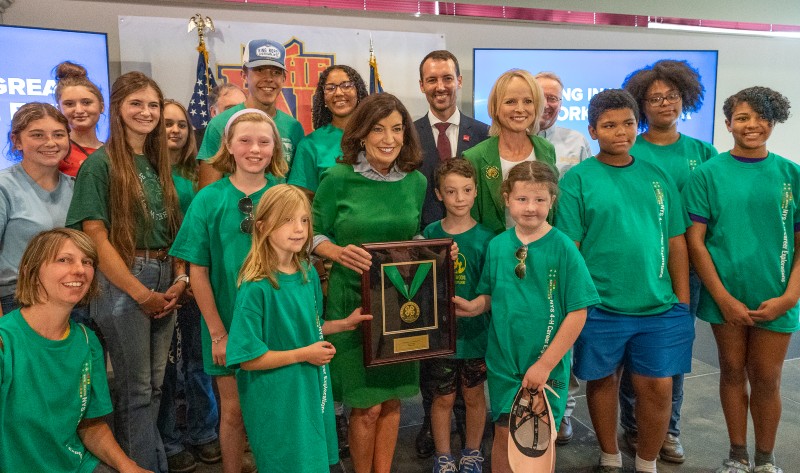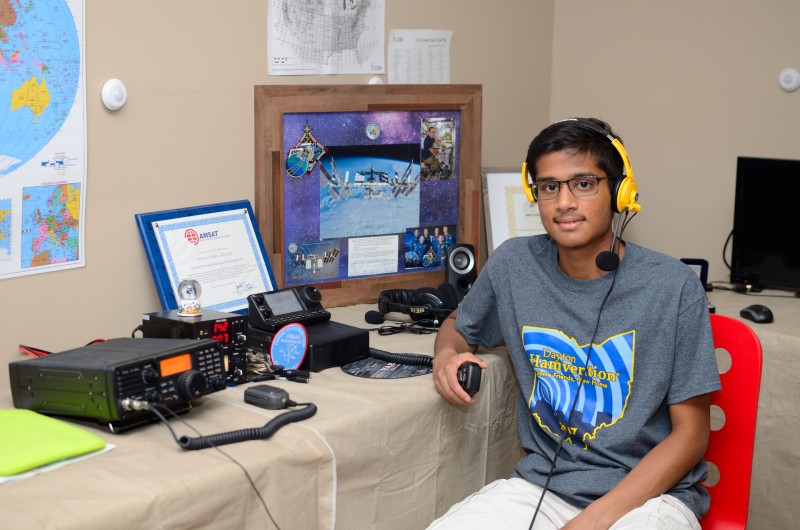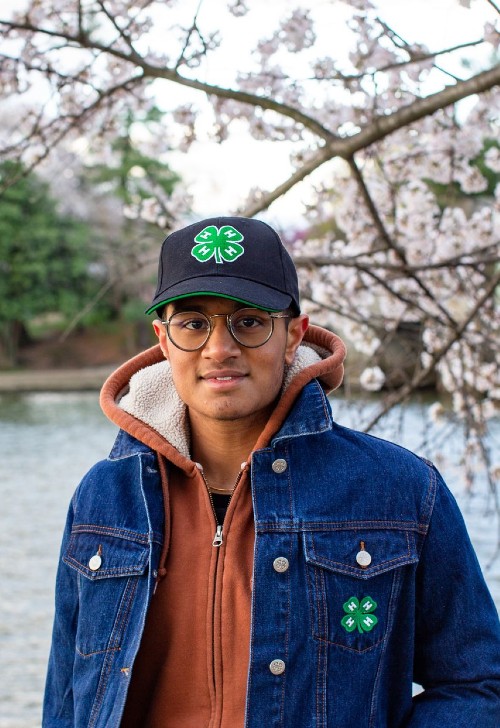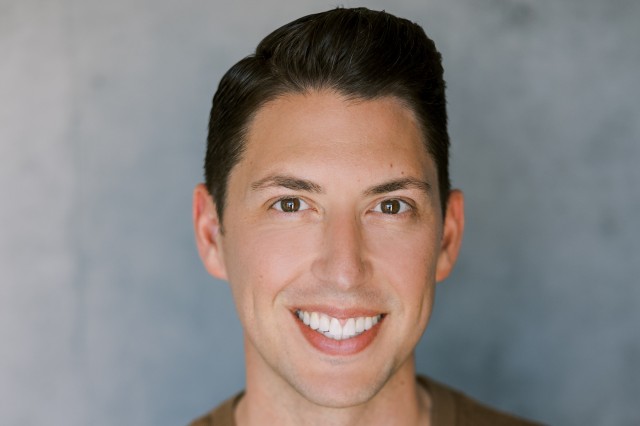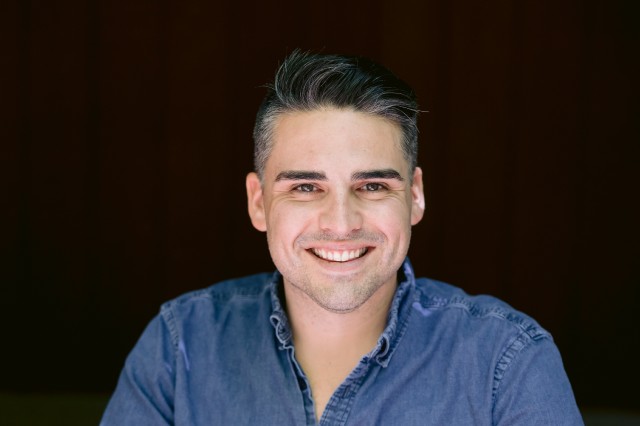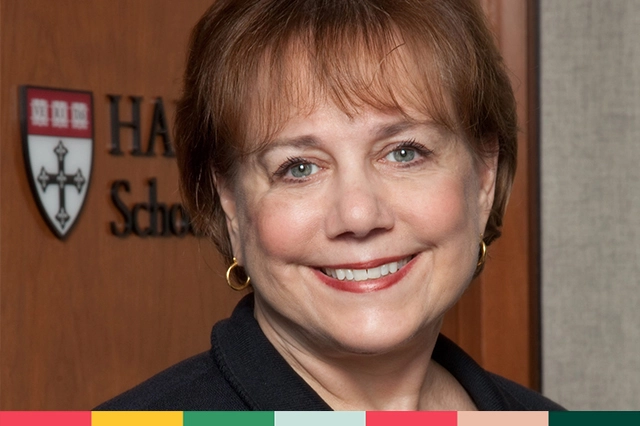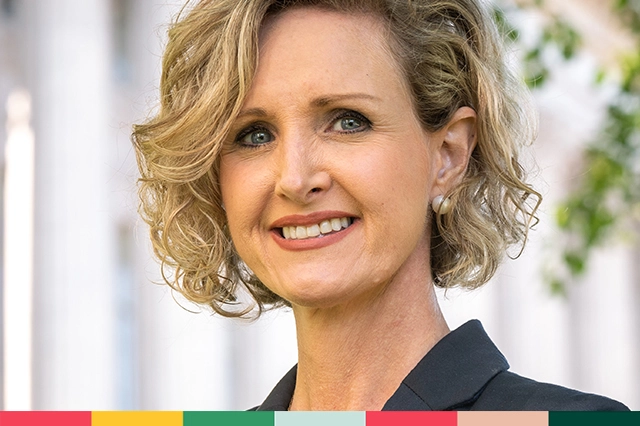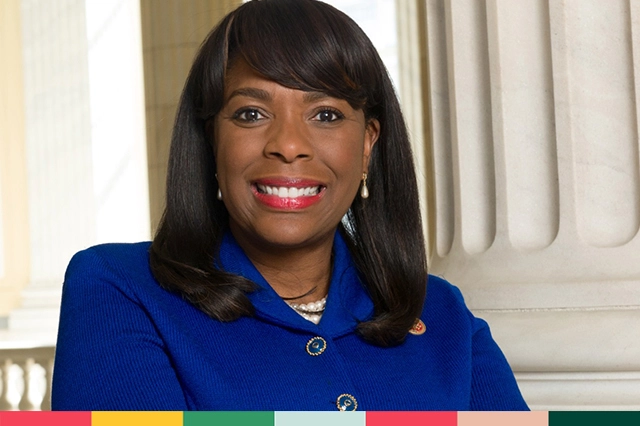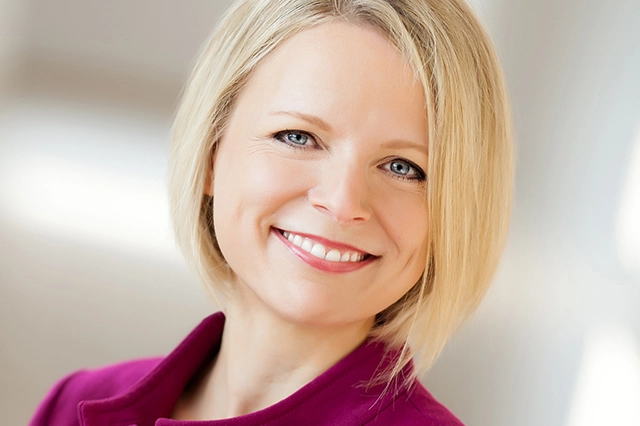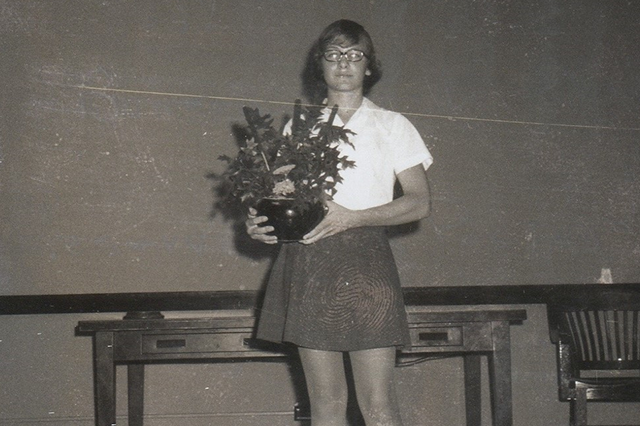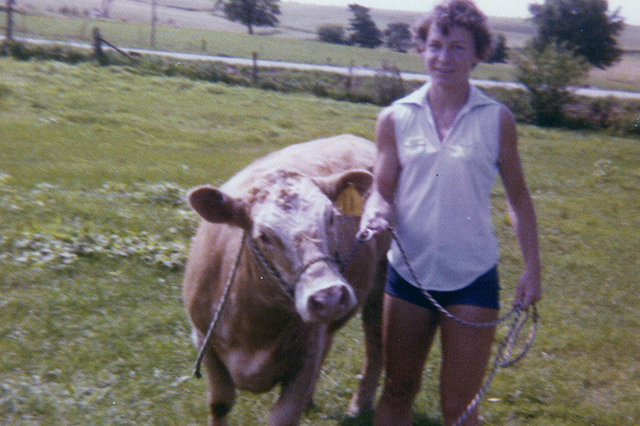It all began when Tiffany Thornton's parents encouraged her to take part in a 4-H public speaking contest when she was just nine years old.
"To this day I can still remember the first paragraph of my speech, which was about water pollution - 'When the well is dry, we will know the true worth of water. Benjamin Franklin spoke these words in 1776 and they were as profound then as they are today'."
What are we doing today to make the world better tomorrow?
The positive experiences Tiffany enjoyed as a 4-H'er inspired her involvement in something that would leave the world a better place for the next generation. Tiffany is a Senior Research Associate in the plant breeding unit at Corteva, where she leads a team in logistical operations and workflows at the Miami-Missouri Research Center.
As a 3rd generation 4-H'er who is now raising a 4th generation, Tiffany credits 4-H with offering her the opportunities that led her to where she is today. Her passion for ensuring communities have what they need to thrive, but doing so responsibly and sustainably, drives her every day. The 4-H motto, To make the best better, continues to inspire her. "What are we doing today to make the world better tomorrow? I think that's one of the key things about 4-H and 4-Hers, to make ourselves the best, even better. Being in 4-H and having these experiences led me to where I am."
By being involved in this project I've learned so much about pollinators...
There's a place for all of us in this.
Tiffany has been with Corteva for 16 years now and knows they are an organization that resonates with these same values of helping communities thrive. "Every day I know I'm impacting that people are going to eat tomorrow."
Tiffany's involvement in the Corteva Grows Pollinators Habitat Program, which supports monarch butterfly and pollinator habitat creation across the United States in partnership with 4-H and Pheasants Forever, is just one example of how Tiffany is helping create an impact.
"Even 10 or 15 years ago we didn't hear too much about the situation with our pollinators, but fortunately that's changed," shared Tiffany. "By being involved in this project I've learned so much about pollinators; I've become more aware of what's going on and how we can be better stewards of the land. There's a place for all of us in this."
Without 4-H, I don't know that I would have ended up here.
While Tiffany didn't always know exactly what career or path she was going to take, 4-H gave her the confidence to seek it out and the resilience to push on, even when she stumbled.
"4-H taught me the ability to not be afraid to go do this other thing, even though all my friends might not have been doing it, but to go look at this because it was something I was interested in."
During college she interned for the Missouri state legislature and an ag biotech company, before deciding in her senior year that she wanted to go back to her native area and community. After some searching, an opportunity at Corteva presented itself. She began her early career leading and coordinating a team of high school and college-aged youth. She then worked on breeding corn varieties which truly resonated with her. It didn't take long for her to know she had found her calling.
4-H taught me...to not be afraid.
For Tiffany, it all goes back to that first speech. It made her aware that there is a much bigger world out there and if we don't take care of what we're given, we might lose it. Over time, that speech has evolved into something so much more.
"Without 4-H, I don't know that I would have ended up here. I went into my high school career in the National FFA willing to take chances and opportunities because I had already done that in 4-H. I built on the foundation of experiences that 4-H provided me with."
It helps you build resilience and confidence in yourself.
Now, Tiffany is happy to be raising a new generation of 4-H'ers. Her 10-year-old daughter is showing livestock and blooming into a confident youth who is finding her own passion and learning lessons through the highs and lows of raising livestock. Meanwhile, her 6-year-old son is anxiously waiting his turn to join 4-H and begin showing himself.
"This is the good thing about 4-H - it teaches you that sometimes life is going to have challenges and setbacks, but in the end, it helps you build resilience and confidence in yourself so you can seek and discover how you can make a difference."









